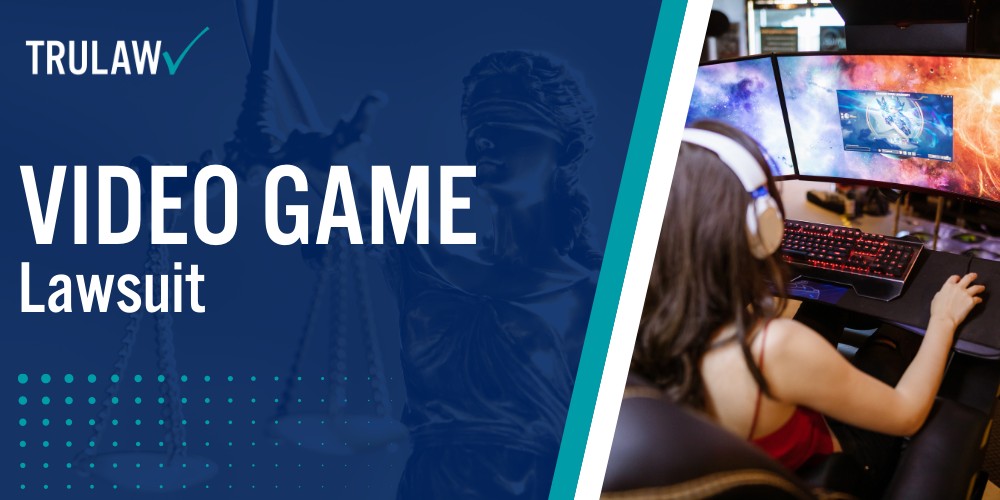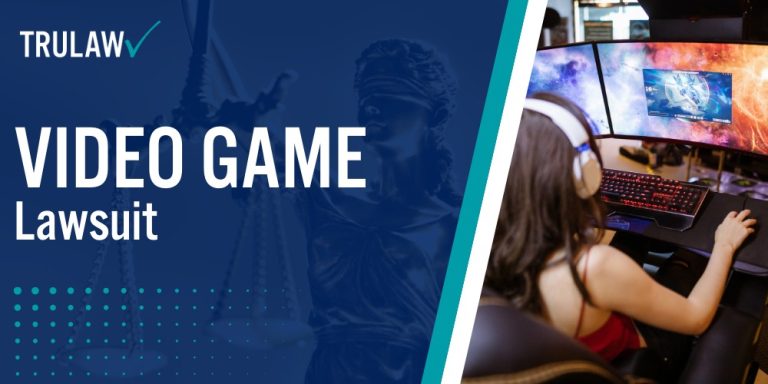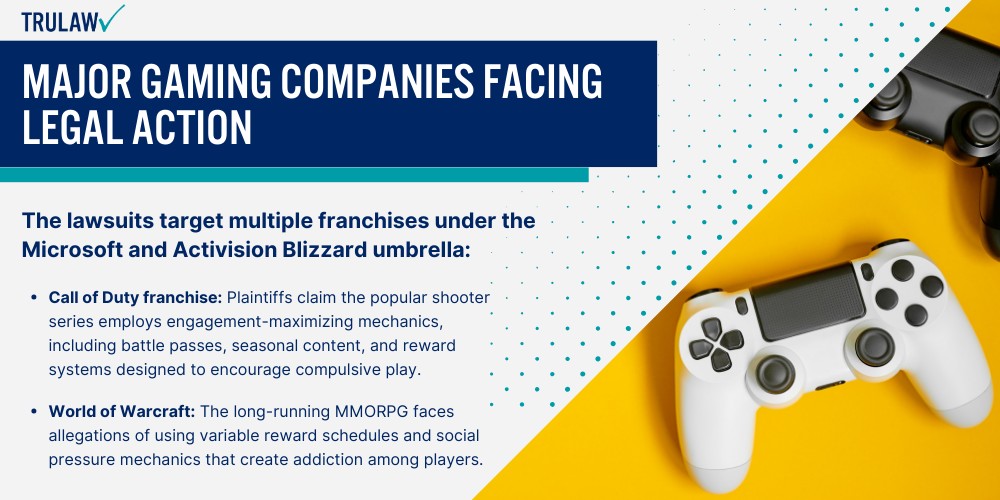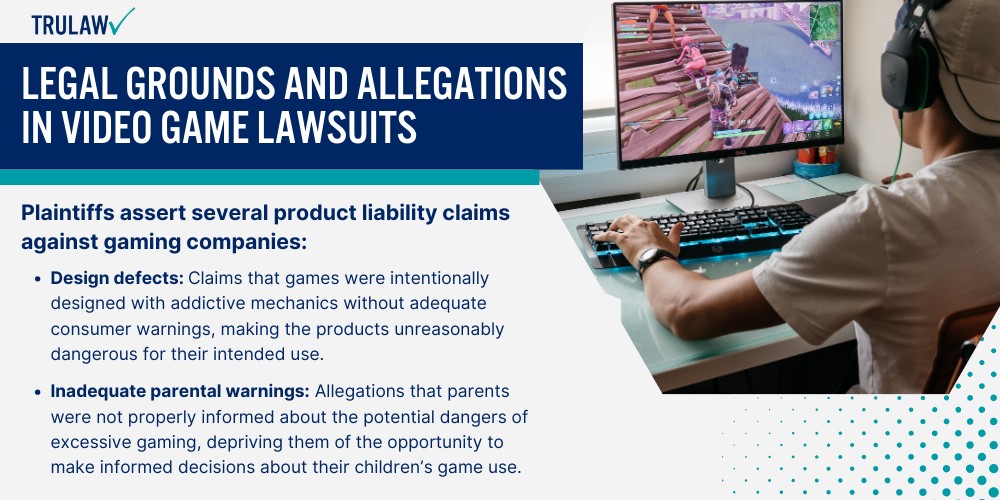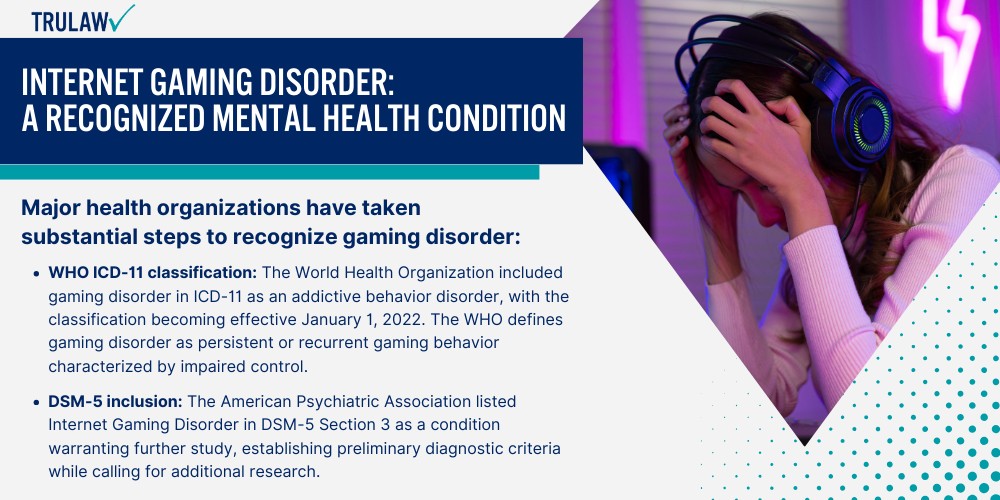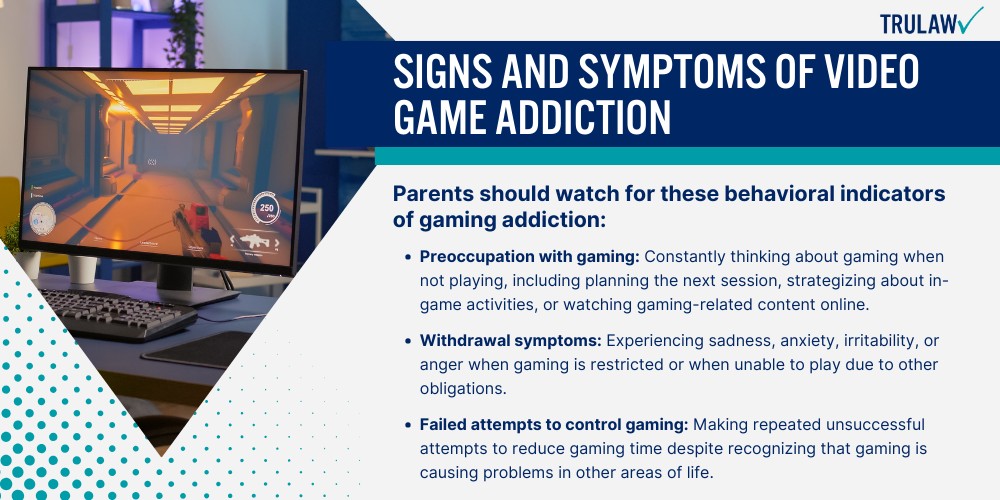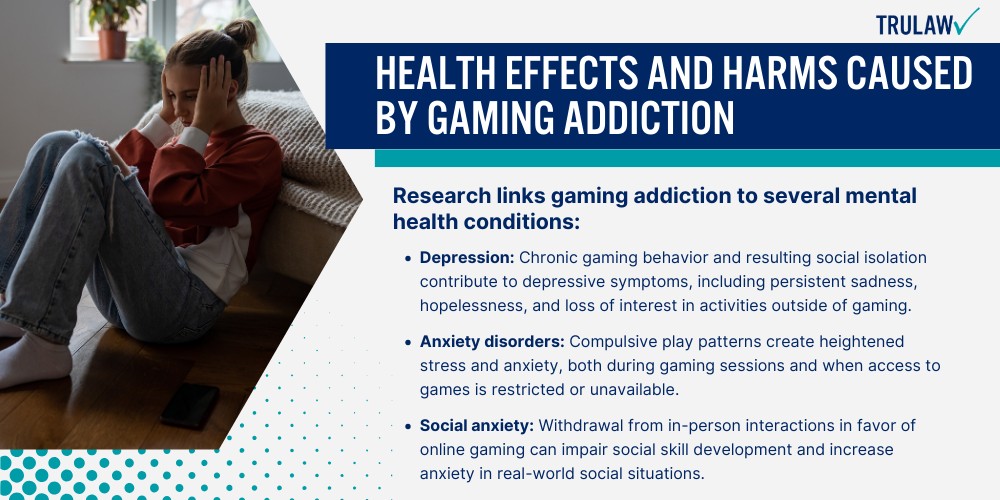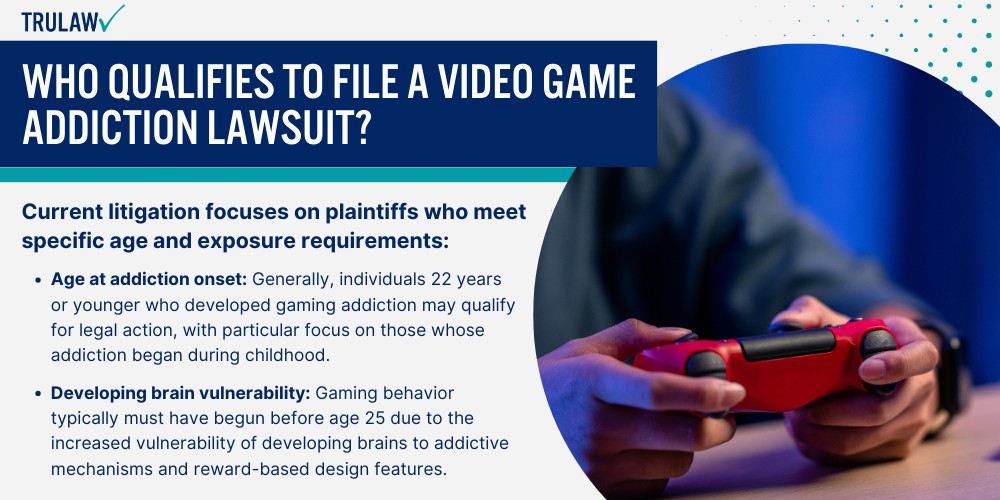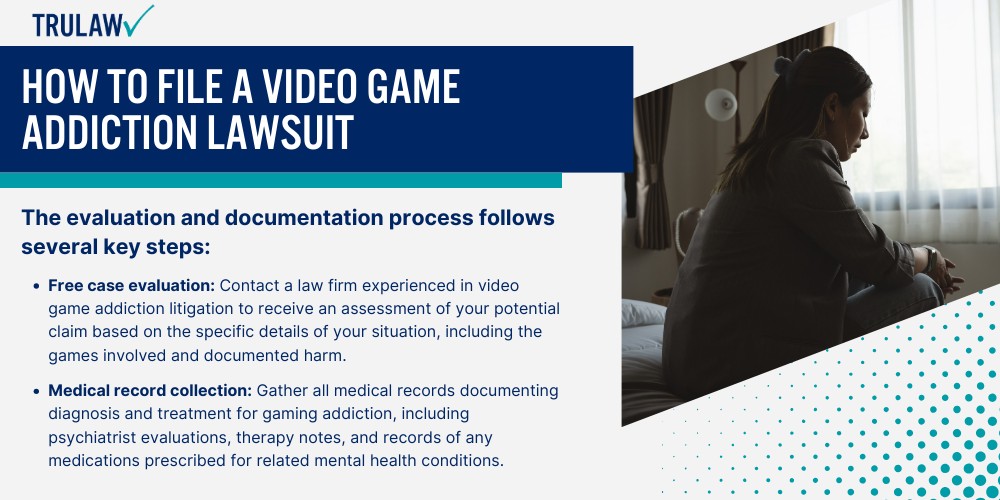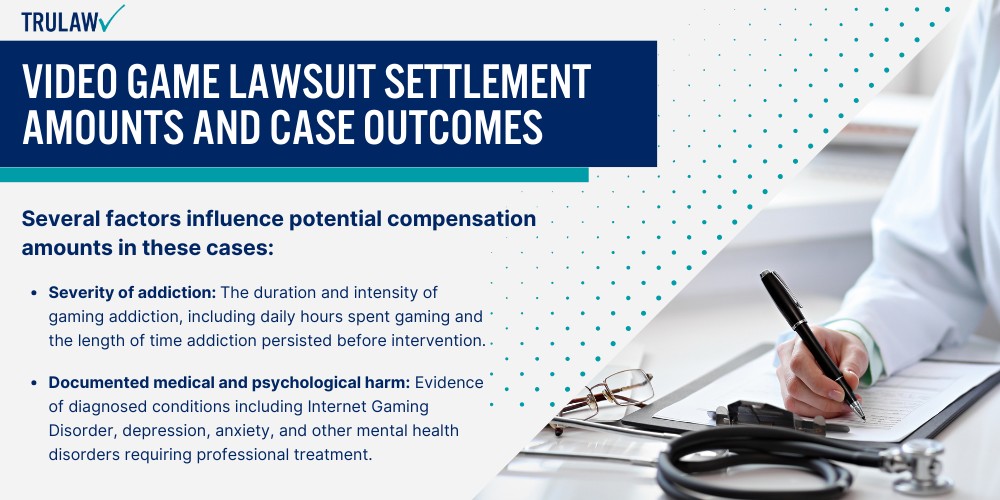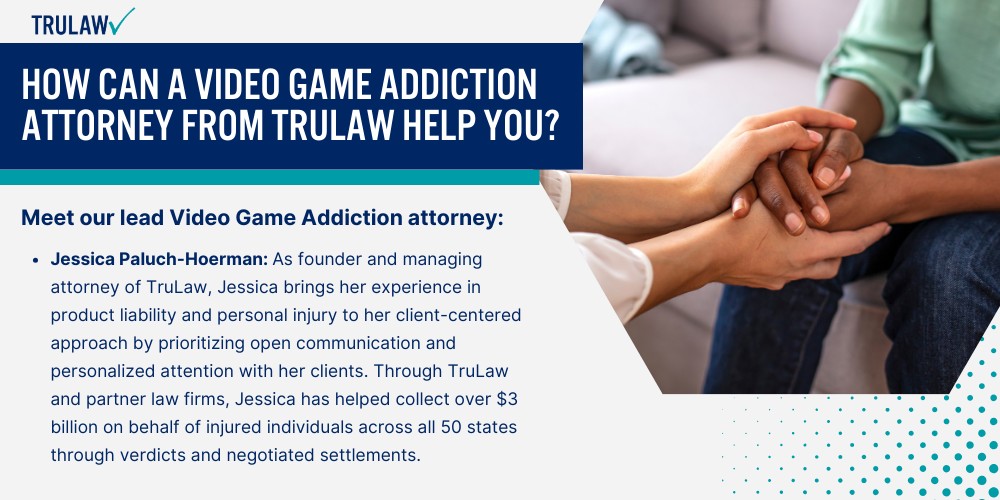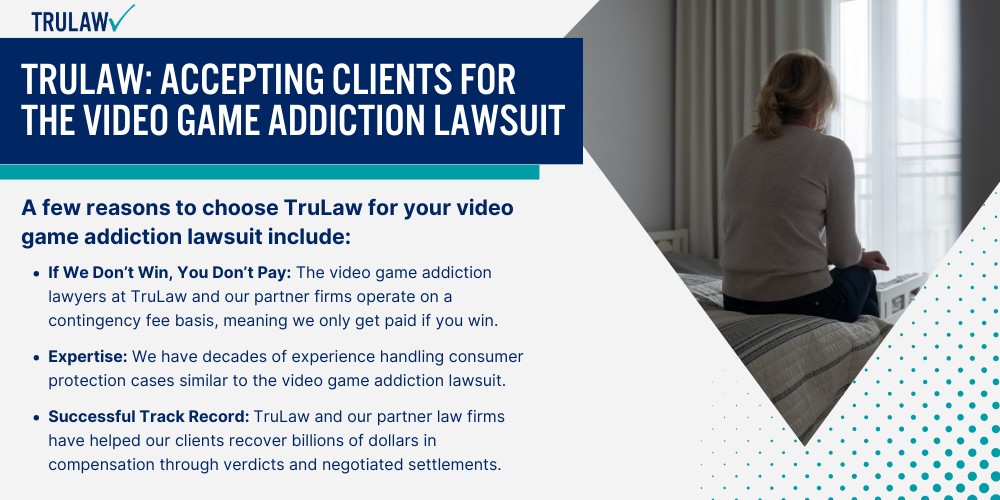Video game addiction lawsuits represent a growing category of product liability litigation targeting gaming companies for allegedly designing products that cause psychological and physical harm.
These legal actions claim that manufacturers knowingly incorporated addictive game designs into their products while failing to warn consumers about the risks of excessive play.
Families pursuing these claims argue that gaming companies prioritized engagement metrics and revenue over the safety and well-being of their users, many of whom are children.
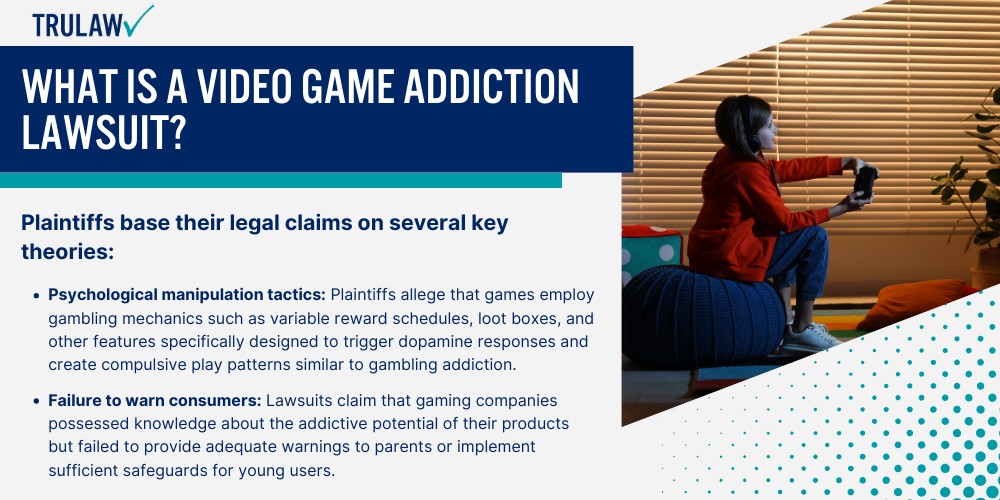
The Basis of Video Game Addiction Claims
Legal claims in video game addiction lawsuits allege that gaming companies knowingly made their games addictive, exploiting psychological vulnerabilities to optimize player engagement and spending.
These lawsuits argue that manufacturers failed to adequately warn parents and players about the potential dangers of their products, despite internal knowledge of addictive design elements.
The cases seek to hold gaming companies accountable for the mental, emotional, and physical harm caused by excessive gaming among vulnerable populations.
Plaintiffs base their legal claims on several key theories:
- Psychological manipulation tactics: Plaintiffs allege that games employ gambling mechanics such as variable reward schedules, loot boxes, and other features specifically designed to trigger dopamine responses and create compulsive play patterns similar to gambling addiction.
- Failure to warn consumers: Lawsuits claim that gaming companies possessed knowledge about the addictive potential of their products but failed to provide adequate warnings to parents or implement sufficient safeguards for young users.
- Seeking accountability for documented harm: Cases pursue compensation for mental health disorders, academic decline, social isolation, and physical health consequences resulting from excessive gaming behavior.
The fact that the medical community now recognizes video game addiction strengthens these legal claims considerably.
The World Health Organization included gaming disorder in ICD-11, which became effective January 1, 2022, classifying it as an addictive behavior disorder characterized by impaired control over gaming, increasing priority given to gaming over other activities, and continuation despite negative consequences.
According to the American Psychiatric Association’s research on internet gaming, approximately 0.3 to 1.0 percent of the general population might qualify for a potential diagnosis of internet gaming disorder.
Among adolescents, prevalence estimates reach as high as 8.6% globally, with the highest rates observed in China at 11.7%.
This formal recognition by major health organizations provides plaintiffs with established diagnostic criteria to support their claims of addiction-related harm and creates a medical foundation for demonstrating that video game addiction is a legitimate condition with documented consequences.
If you or a loved one has experienced mental health problems, academic decline, or other harm related to excessive video game use, you may be eligible to seek compensation.
Contact TruLaw using the chat on this page to receive an instant case evaluation that can help you determine if you qualify to join others in filing a video game addiction lawsuit today.
